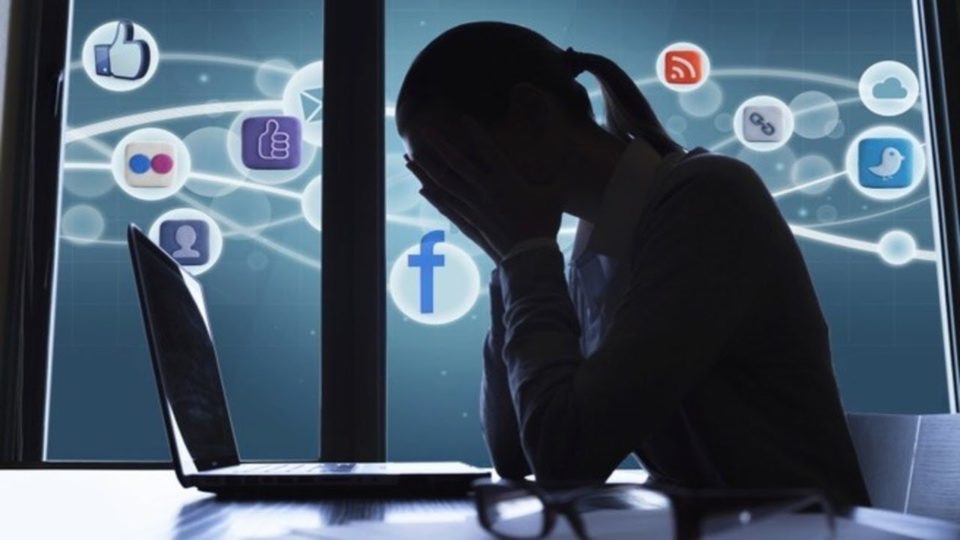People spend more and more time on social media daily, but studies have shown that excessive use can have adverse effects. According to recent findings, continuous scrolling and liking can cause depression in some cases. If you’re feeling down and out, social media depression may be to blame. Unfriending people on social media can make you feel better. The solution may be simpler than you think; unfriending anyone who triggers you can reduce depression symptoms. This is simply one of many studies about how social media can affect your mental state for better or worse.

There is no one answer to this question, as social media depression can manifest differently. Generally speaking, social media depression is a condition that results from spending too much time on social media platforms such as Facebook, Twitter, and Instagram. You can also experience social media depression if you scroll through social media or “like” things on other platforms.
Social media usage can cause depression when they don’t deliver on the “me” time and social connection they promise. People feel this way because the platforms give them more information and things to increase their mood. Unfortunately, many people misuse social media. They think they should be on social media constantly because it’s a way to get validation and affirmation from their friends, followers, and other social media users.
Social media depression is a condition that is caused by spending too much time on social media. Spending more time on social media than is healthy can affect your mood and cause you to feel down. It’s not uncommon for young people to feel depressed as they transition from adolescence into adulthood. Social media use can contribute to the onset of depression, but it’s not the only cause.
Teens may be going through many life changes, including changing schools, relationships with family members, and starting work or volunteering. All of these changes can be challenging. Consider reaching out to someone you trust for help if you feel down. You can talk to a teacher, coach, or another adult you know. You can also try to identify activities you enjoy and focus on those.
If you’re feeling down, irritable, or anxious after spending time on social media, you may be experiencing social media depression. The constant exposure to negative posts and images on social media causes this type of depression. “The constant exposure to negative posts and images on social media causes this type of depression.” Look at your smartphone or tablet to see if you’re scrolling through social media and feeling down.
Studies have shown that social media can affect our moods by increasing the stress hormone cortisol levels, decreasing dopamine levels in the brain, and altering how we experience emotions. Dopamine is the neurotransmitter that gives us a feeling of reward and motivation. When we see a friend post about getting a new car or receiving it, like in our selfies, our dopamine levels are increased and give us a rush of pleasure and satisfaction.
There are a few things you can do to prevent social media depression. First, try to limit your time on social media. Second, make sure you spend time with friends and family in person. Third, be mindful of the posts you read and the people you follow. Think about whether or not the content is something you would want to read or keep up with in real life.
Only follow people that you know and like. If you do not see the person, only follow them if they have a large following. Fourth, be mindful of the comments that you are reading. Only read those that add value to your conversations. You can quickly become overwhelmed with so much information. Fifth, follow back people who comment on your content. Respond to their comments if they add value to your community. This will help build relationships.
Things you should keep in your Mind
- What are some signs that I may be experiencing social media depression?
- How can I limit my time on social media?
- How can I ensure I spend time with friends and family in person?
- What should I be mindful of when I am using social media?
- Who can I talk to if I am experiencing social media depression?
- Are there any treatments for social media depression?
When to seek medical advice. There are many treatment options for social media depression. Some people may need medication to help them cope, while others may need therapy. If your symptoms worsen, or you have concerns about the amount of time since your accident, talk to your GP. Worrying about how you will pay for any treatment and cover is normal. You may get some help with this through your workplace injury insurance or state benefits, or you may get an appointment with a private healthcare provider at a reduced cost.
How to Deal With Social Media Depression
Depression is a mental health disorder that affects people of all ages and backgrounds. Social media depression is a type of depression caused or worsened by using social media. Symptoms of social media depression include feeling isolated, anxious, and down. If you are experiencing social media depression, you can take steps to improve your mental health. If you are experiencing social media depression, the first step is acknowledging your struggle.
Conclusion
According to a study, social media depression is a real problem for young people. The study found that people who use social media more than average are more likely to be depressed.
